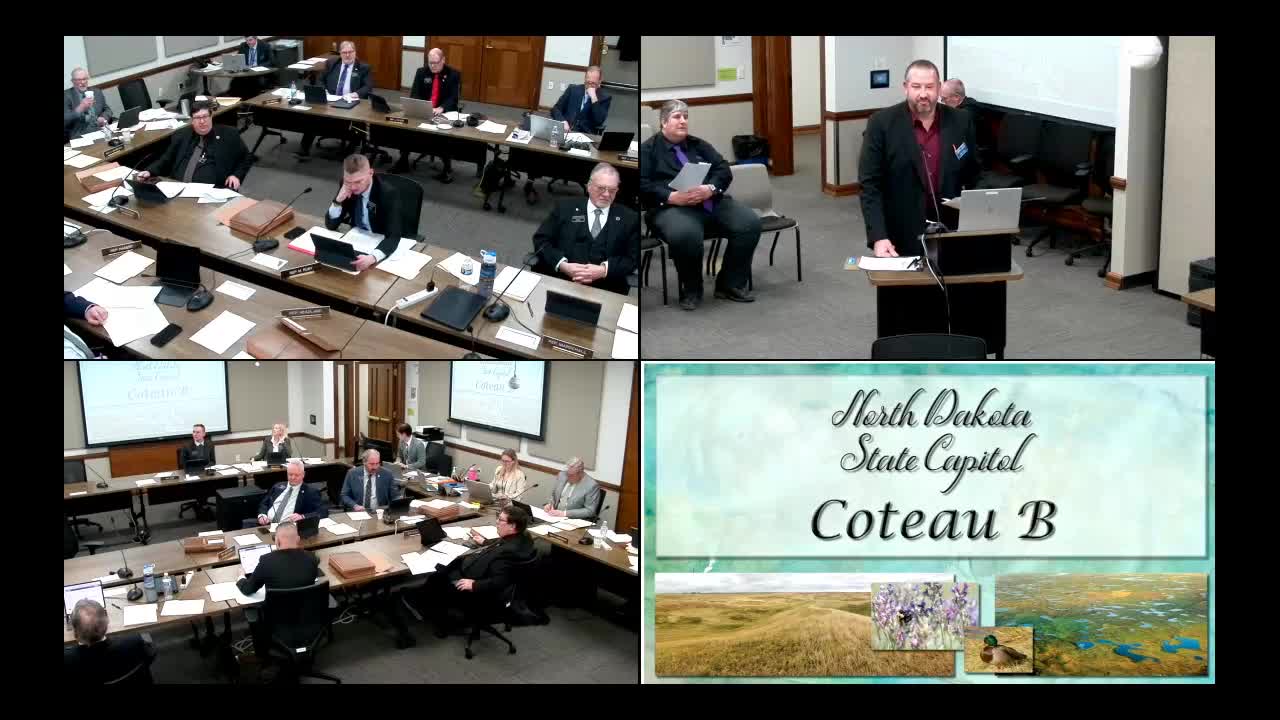Senate panel discusses operator certification amid concerns on rural water system compliance
March 06, 2025 | Energy and Natural Resources, House of Representatives, Legislative, North Dakota
This article was created by AI summarizing key points discussed. AI makes mistakes, so for full details and context, please refer to the video of the full meeting. Please report any errors so we can fix them. Report an error »

The North Dakota State Legislature's House Energy and Natural Resources Committee convened on March 6, 2025, to discuss critical updates regarding operator certification for water systems across the state. The meeting highlighted the importance of certified operators in maintaining safe drinking water and addressed concerns about penalties for non-compliance.
A key focus of the discussion was the collaboration between the Department of Environmental Quality (DEQ) and local operators to enhance the certification process. Officials emphasized that certified operators are essential for the sustainability and success of water systems, particularly in small and rural communities. The committee expressed support for recent updates to the certification process, which aim to provide real-world experiences and improve testing for operators.
Concerns were raised regarding the penalties imposed on systems lacking certified operators. Committee members sought clarification on whether penalties would be enforced only in cases of broader operational issues, rather than solely for the absence of certification. It was noted that many small systems often face challenges in maintaining certified operators due to workforce shortages and turnover.
The committee discussed potential solutions, including the introduction of third-party certification and testing options, which could alleviate the burden on small systems. This approach would allow for more flexible testing locations and increased opportunities for operators to gain certification.
Additionally, the conversation touched on the need for municipalities to establish memorandums of understanding (MOUs) with neighboring systems to ensure continuous oversight and support in the event of operator turnover. The DEQ reiterated its commitment to assisting communities in achieving compliance rather than focusing solely on penalties.
The meeting concluded with a recognition of the high compliance rates for health-based water quality criteria in North Dakota, with officials noting that over 99% of systems meet these standards. However, the ongoing challenge of ensuring that all systems are operated by certified personnel remains a priority for the legislature and the DEQ.
As the committee moves forward, the proposed changes aim to strengthen the framework for operator certification, ensuring that North Dakota's drinking water remains safe and reliable for all residents.
A key focus of the discussion was the collaboration between the Department of Environmental Quality (DEQ) and local operators to enhance the certification process. Officials emphasized that certified operators are essential for the sustainability and success of water systems, particularly in small and rural communities. The committee expressed support for recent updates to the certification process, which aim to provide real-world experiences and improve testing for operators.
Concerns were raised regarding the penalties imposed on systems lacking certified operators. Committee members sought clarification on whether penalties would be enforced only in cases of broader operational issues, rather than solely for the absence of certification. It was noted that many small systems often face challenges in maintaining certified operators due to workforce shortages and turnover.
The committee discussed potential solutions, including the introduction of third-party certification and testing options, which could alleviate the burden on small systems. This approach would allow for more flexible testing locations and increased opportunities for operators to gain certification.
Additionally, the conversation touched on the need for municipalities to establish memorandums of understanding (MOUs) with neighboring systems to ensure continuous oversight and support in the event of operator turnover. The DEQ reiterated its commitment to assisting communities in achieving compliance rather than focusing solely on penalties.
The meeting concluded with a recognition of the high compliance rates for health-based water quality criteria in North Dakota, with officials noting that over 99% of systems meet these standards. However, the ongoing challenge of ensuring that all systems are operated by certified personnel remains a priority for the legislature and the DEQ.
As the committee moves forward, the proposed changes aim to strengthen the framework for operator certification, ensuring that North Dakota's drinking water remains safe and reliable for all residents.
View full meeting
This article is based on a recent meeting—watch the full video and explore the complete transcript for deeper insights into the discussion.
View full meeting
